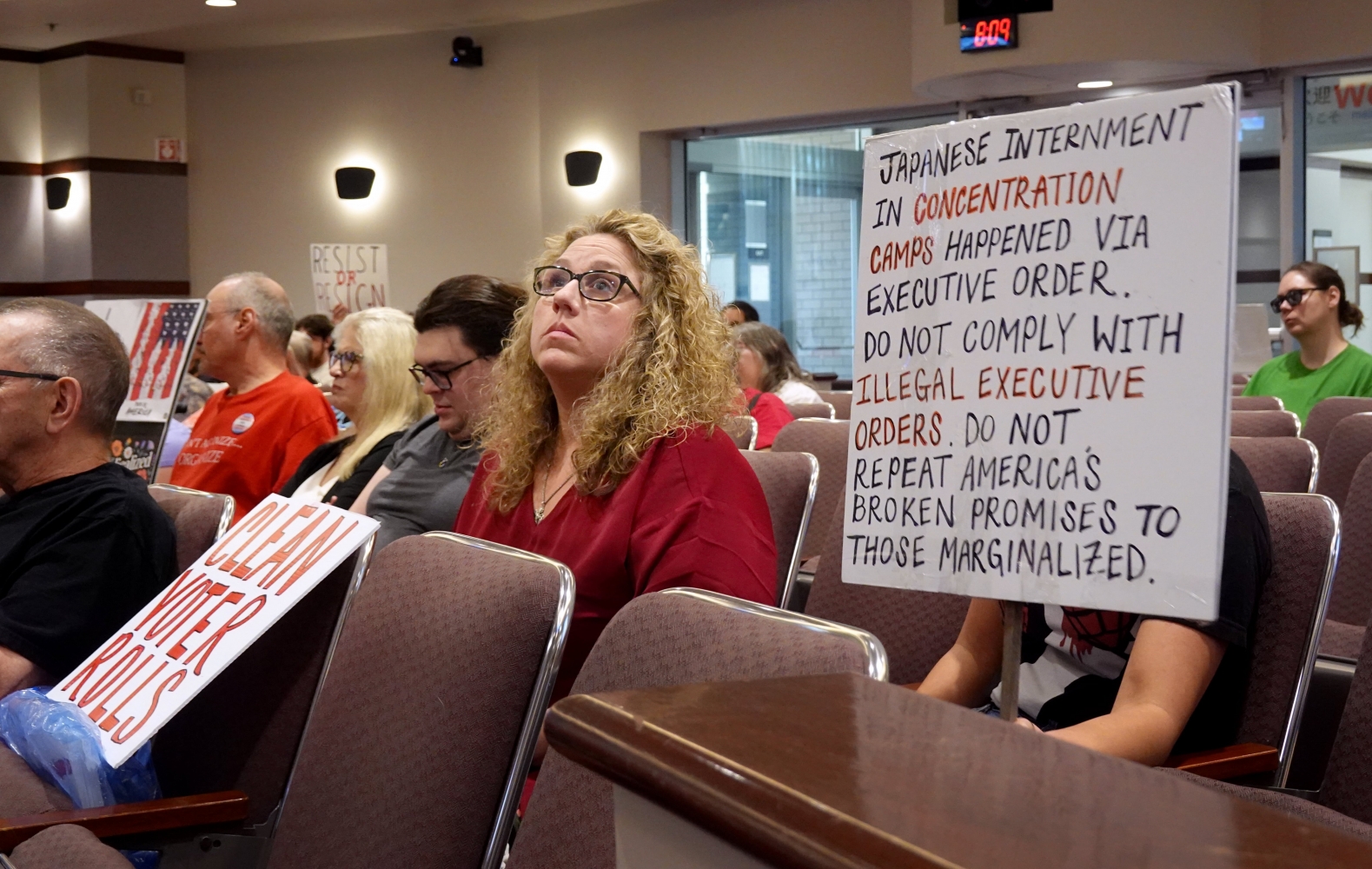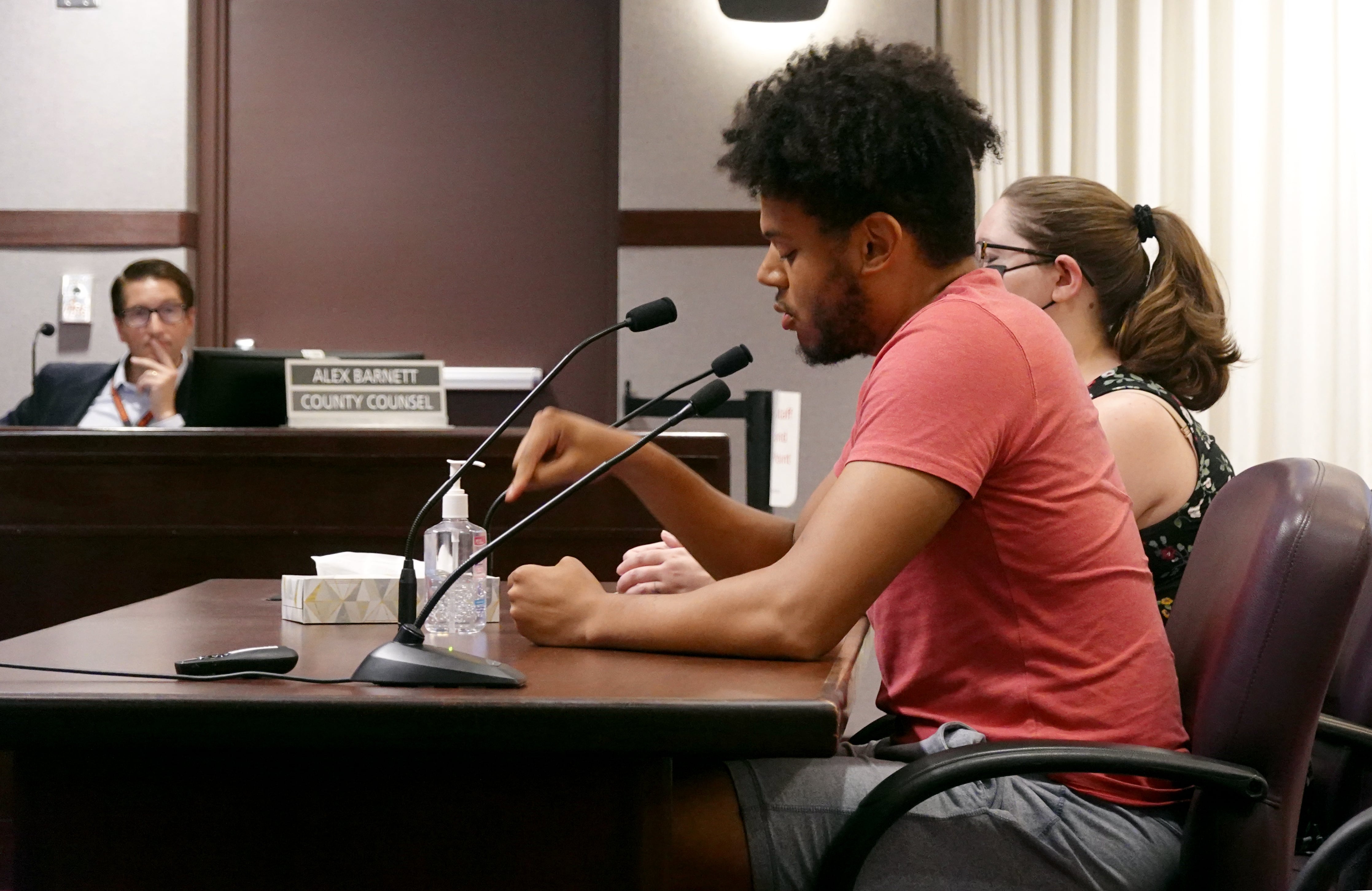

Published on: 07/23/2025
This news was posted by Oregon Today News
Description

Like many public agencies across the country, the Washington County Board of Commissioners has been weighing the delicate balance of its community commitments to diversity, equity and inclusion against new federal policies, under which those values can jeopardize access to federal funding.
In the first weeks of his second term, Trump issued several executive orders related to diversity, equity and inclusion.
Hoping to keep its $135 million in annual federal funding, the county board voted to revise its policies while underscoring a commitment to “access and opportunity” at a meeting Tuesday.
The board voted unanimously to adopt the “Access and Opportunity Resolution and Order” which states, in part, that the county “remains committed to providing respectful and compassionate service to residents, workers and visitors in Washington County, with a focus on improving outcomes for individuals, as part of its commitment to responsible stewardship, results-based service excellence, continuous improvement, and effective and efficient government operations.”
But for one of the commissioners — and more than a dozen community members who testified at the meeting — the resolution did not go far enough in affirming Oregon’s status as a sanctuary state.
Particularly, in the wake of the dramatic detainment of a local chiropractor outside his child’s preschool, some community members felt it was paramount to explicitly state this commitment to upholding state law.
Tuesday’s meeting was the culmination of a monthlong review of county policy and values discussions with county staff, commissioners, advisory boards and community members.
In June, the commission considered rescinding its 2020 resolution that outlines a commitment to diversity, equity and inclusion in county programs and policies. County officials feared the 2020 resolution jeopardized the county’s access to federal money, thanks to the executive orders from the Trump administration stating that local governments with DEI programs and policies could not receive federal funding.
After pushback from community members and staff, the commission decided to table that decision and hear from the community before taking action.
Tuesday’s meeting did not include elimination of the 2020 resolution. Instead, the new resolution shifts language in county policy from the DEI terms identified by the Trump administration to words like “access” and “opportunity.”
Washington County was not the only public agency to consider such a move in the wake of federal policy changes. In February, the Deschutes County Board of Commissioners voted to dissolve its diversity, equity, inclusion and access committee. The Port of Portland decided in April to rescind its DEI policies, which had been on the books since 2018. Clackamas County took action prior to Trump’s election, eliminating its equity and inclusion office in January 2024.
In a presentation to the commission, County Administrator Tanya Ange said all sorts of county programs and services that receive federal funds are at risk. These include housing support, home nursing services for pregnant women and children with special health needs, addiction prevention, senior Medicare, resources for elderly people and people with disabilities, care for veterans and more.
Ange said the county has already received new funding requirements from the federal government, which state that the county cannot use the money to promote diversity, equity and inclusion.
She also emphasized that with numerous executive orders now in various stages of multiple lawsuits, the situation is constantly changing.
‘Access’ and ‘Opportunity’

Washington County’s newly adopted resolution and accompanying “guiding principles” for federal funding are meant to serve as guidelines for county staff in their work with federal grants and contracts.
According to the resolution, “access” means removal of barriers so that everyone can make use of county resources and services, while “opportunity” refers to fair chances for all.
The resolution and guiding principles note the county’s adherence to local, state and federal laws, including the Civil Rights Act, Age Discrimination Act, Americans with Disabilities Act and Rehabilitation Act.
It also states the county administrator will review programs twice a year to “ensure compliance with federal and state non-discrimination laws.”
Ange acknowledged that some federal and state laws, such as Oregon’s sanctuary laws, directly conflict with one another.
For Fai, this conflict made it all the more important to include language in the resolution about the state’s sanctuary status. Oregon’s sanctuary law prohibits state and local law enforcement from assisting federal immigration authorities without a judicial warrant.
Fai attempted to add a section to the resolution about Oregon’s sanctuary status. The proposed amendment read, “Whereas, the State of Oregon has enacted laws establishing Oregon as a sanctuary state, limiting the use of public resources to enforce federal immigration laws and affirming the rights of all residents to access services without discrimination ...”
While Fai’s amendment was supported by most of the two dozen community members who testified at Tuesday’s meeting, it was not backed by any of the other four members of the commission.

In a pre-meeting work session, Commission Chair Kathryn Harrington said Fai’s amendment was “reckless.” Commissioner Jerry Willey said during the regular meeting that the county’s legal counsel advised not including the amendment because it could bring further risk to the county.
Fai emphasized that the amendment was not meant to raise a red flag with the federal government as the county tries to fly under the radar, but to reaffirm the county’s commitment to the state’s sanctuary laws.
“I offered language that made explicit what too often goes unspoken,” Fai said, “that state law matters, that dignity matters and that local government has a duty to stand between vulnerable communities and systems of harm.”
Fai later told OPB that Willey’s characterization of the county’s legal advice about her amendment was “factually inaccurate.”
More than a dozen public commenters shared concerns about the resolution and urged the commission to take on Fai’s amendment.
Marcus Mundy, Executive Director of the Coalition of Communities of Color implored the commission to be bold in their “earnest representation of the most ethnically diverse county in the state of Oregon.”
Washington County is the state’s most diverse county, according to data from the 2020 US Census.
“It is deeply concerning to me how willing the county seems to bow to an administration that is openly hostile to so many in our community,” said Washington County resident Jessica McBride. “Less than a week ago, a father was kidnapped at a preschool around the corner from my house. This isn’t some theoretical situation.”

Other commissioners felt that the resolution’s language about commitment to upholding local, federal and state implicitly included state sanctuary law. Ange also said that Washington County will continue to honor Oregon’s status as a sanctuary state.
But by not explicitly stating the county’s adherence to sanctuary law, Fai felt Washington County was inviting the federal government to come in and abuse the law. Not including such language signals that the county won’t stand up to the federal government, Fai said, leaving the door open for immigration authorities to work with local law enforcement.
Commenters like Mundy, McBride and others also urged the commission to join one of several lawsuits against executive orders and the Trump administration.
In an interview on OPB’s “Think Out Loud” on Monday, Harrington said Washington County does not have the financial resources to join these lawsuits. But during the meeting, Commissioner Pam Treace said joining litigation had not been ruled out.
While frustrated with the rules for funding from Washington, D.C., ultimately a majority of the commission felt the resolution and order — without any amendments — was necessary to safeguard funding.

“I agree that it (the federal government) is capricious and cruel. I also know and agree that we are taking the right steps by focusing this targeted and direct R&O to make sure that we can provide the $135 million to our community that’s required,” Treace said.
Harrington reiterated that the resolution will not resolve all of the issues around federal funding and DEI.
“This is a necessary step. It’s not the destination. It’s just a point on our journey together,” Harrington said.
News Source : https://www.opb.org/article/2025/07/23/washington-county-new-policy-comply-trump-dei-mandates-access-opportunity/
Other Related News
07/25/2025
Grants are for shovel-ready projects for bridges culverts overpasses or tunnels on Oregon ...
07/25/2025
The health system announced they would pause surgical treatment for patients under the age...
07/25/2025
Fridays stage was meant to be 1299 kilometers 805 miles long but was trimmed to 931 kilome...
07/25/2025
One of Portlands largest and most well-known protests the World Naked Bike Ride returns to...
07/25/2025







